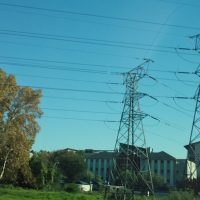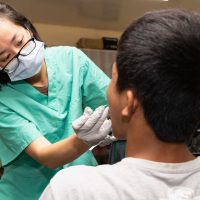Deadline: 19-Feb-23
The Joseph Rowntree Charitable Trust (JRCT) is seeking applications for the Grassroots Movements Fund which is aimed at grassroots social movement groups working on transformative change.
The Grassroots Movements Fund is a new area of work to resource movements on the frontlines of social and environmental injustice, who are striving for justice, equity and transformative change.
The fund aims to provide funding, infrastructure and access to resources and networks to support the sustainability of movement work. Decisions on which groups receive funding will be made by people who have direct experience of working within movements.
The Grassroots Movements Fund is a new Joseph Rowntree Charitable Trust programme. recognise that grassroots movements are an important part of tackling the root causes of injustice and bringing about transformative social change that so far has not been well supported by the Trust and this new fund aims to put that right. Decisions on which applications get funded will be made by a group of people actively involved in grassroots movements themselves, called the Movement Assembly. The Vision of the fund gives an idea of the thinking and aims behind the fund.
Funding Information
- The Grassroots Movements Fund has around £1 million which they are aiming to redistribute over two funding rounds in 2023.
- The fund will make grants of between £10k and £70k to every successful application.
- Grants can cover up to a two-year period.
Work they are interested in funding
- They are excited to hear all your ideas and plans and this is not a full list by any means but is hopefully a useful guide. They are particularly interested in supporting work that aims to:
- Provide resources that help grassroots groups to run smoothly and supports members to keep involved (eg equipment, access to places to meet)
- Create new ways of working that are alternatives to the usual ways organisations run and that focus on valuing and taking care of people
- Bring grassroots groups and movements together to work in solidarity with each other through sharing knowledge and supporting each other
- Supports the participation and needs of people with lived experience of oppression involved in and leading grassroots movements
- Make grassroots communities stronger and more able to challenge injustice and inequality, particularly those outside major cities where movements are well resources
- Improve connection between projects that provide materials needs (eg food, housing) with work that aims to empower people to take action to create change
- Increase awareness and understanding of injustice through events that recognise that everyone has something to share and that gives people the chance to tell their stories
- Radically reimagine and develop new systems and solutions that address injustice and inequality
- Support healing and repair for people and communities experiencing injustice and oppression
Eligibility Criteria
- Be based in the UK with work primarily focused in the UK
- Be a not-for-profit organisation or a coalition of not-for-profit organisations, such as:
- Unregistered group working to benefit the community
- Company Limited by Guarantee (registered with Companies House)
- Community Interest Company (registered with Companies House)
- Charity (registered with Charity Commission)
- Cooperative Society (registered with Financial Conduct Authority)
- Community Benefit Society (registered with Financial Conduct Authority)
- Have these systems in place for making decisions and managing money:
- Documents outlining aims, values and how the group works together (including how decisions are made)
- A bank account in the name of the organisation with 2 or more signatories (or another organisation who will hold the funds)
- Experience of managing money and appropriate systems in place to do so
- Of the groups that meet the above initial 3 criteria, they are looking to support those that are part of grassroots movements and are working towards transformative change. As people may have different ideas about what these terms mean, they have given some examples of what they are looking for.
- Part of a grassroots movement; who can demonstrate at least three of these points:
- Set up and run by communities who have come together in their own time to take action on an injustice they’re facing (could include paid staff but group still led by members)
- The group includes people with lived experience of oppression and their views and experiences are listened to and guide the work of the group
- Regularly brings new members into the group and involves them in decisions about the aims and activities of the group
- Aims to engage and influence a growing number of people, eg through events, campaigns, outreach, demonstrations
- Works in solidarity with other grassroots groups, especially the smaller informal ones, through collaborating and supporting each other
- Working towards transformative change; who can demonstrate at least four of these points:
- Has an understanding of the causes of inequality and injustice
- Works to create completely new, fairer ways of providing what people need to live happy, healthy lives (eg housing, healthcare, education, food, safety) that replace the existing systems rather than trying to improve them
- Group is led by / decisions are made by those directly affected by the issue the group is working on
- A vision of the world where inequality and oppression (eg based on ethnicity, gender, gender identity, sexuality, class, disability) no longer exists
- Works in a way that recognises that all oppressions and injustices are connected and the different needs people have because of this
- Works in a way that reflects their values and the change they want to see, which may include practices of healing and repairing and new ways of being together
Ineligible
- Work which is primarily focused outside of the UK
- Large organisations who are already well funded by other trusts, and foundations or individuals and have significant reserves
- Organisations set up by the government
- Universities
- Organisations that are already funded by another grant programme within JRCT
- Branches/ local groups of well-funded and resourced national or international organisations
- Groups that have beneficiaries who don’t have decision-making powers in the organisation
- Work that does not have charitable purposes
- Traditional policy and campaigning work that solely aims to reform existing systems that cause harm
- Building, buying or major repair of buildings.
For more information, visit Joseph Rowntree Charitable Trust.








































